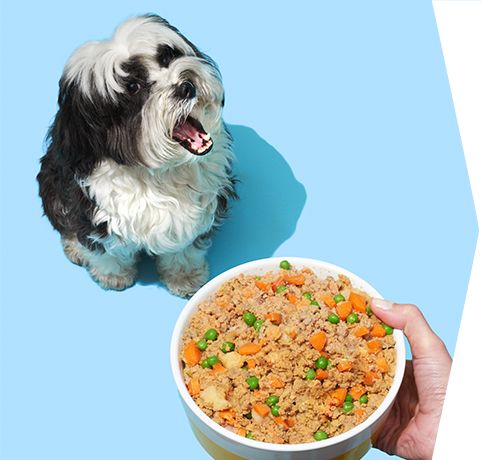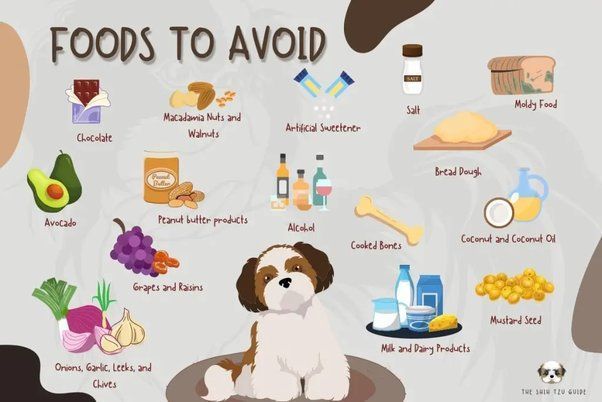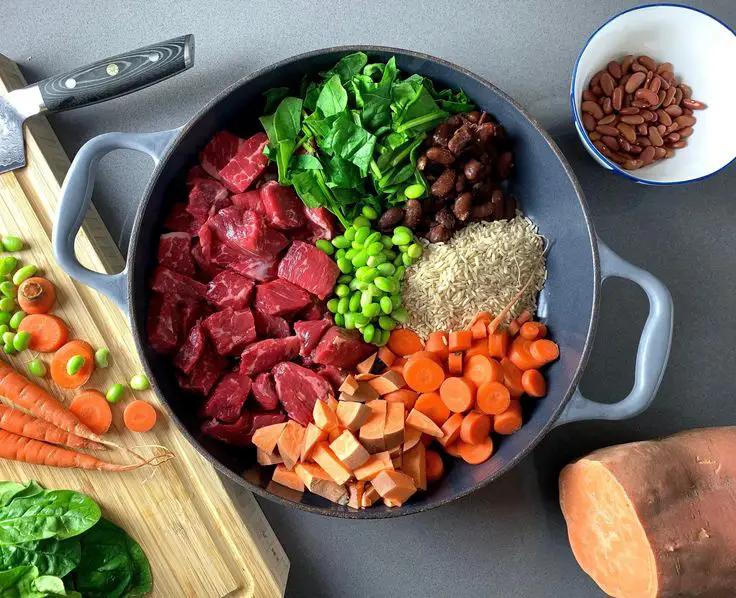
Welcoming a Shih Tzu puppy into your home is a delightful experience, but it also comes with the responsibility of ensuring their well-being from the start. One of the most crucial aspects of raising a healthy Shih Tzu puppy is providing them with a balanced and nutritious diet. Proper nutrition lays the foundation for their growth, development, and overall health. In this comprehensive guide, we will explore everything you need to know about Shih Tzu puppy nutrition, including essential dietary components, feeding guidelines, and common dietary issues.
Understanding Shih Tzu Puppy Nutritional Needs

Essential Nutrients for Growth and Development
Shih Tzu puppies have specific nutritional needs that must be met to support their growth and development. Puppy food should be specially formulated to provide the right balance of nutrients essential for their health. Key nutrients include proteins, fats, carbohydrates, vitamins, and minerals, each playing a critical role in their development.
Proteins are crucial for muscle development and overall growth. They provide the building blocks for tissues and help maintain a healthy immune system. Quality protein sources such as chicken, turkey, and lamb should be included in your puppy’s diet.
Fats are a concentrated source of energy and are essential for healthy skin and coat. They also aid in the absorption of fat-soluble vitamins. Healthy fats, like those from fish oil and flaxseed, should be part of your puppy’s diet to support their growth and development.

Carbohydrates provide energy and aid in digestion. They help maintain stable blood sugar levels and support overall energy needs. Complex carbohydrates from sources like sweet potatoes and brown rice are beneficial for a balanced diet.
Vitamins and minerals are vital for various bodily functions, including bone health, immune support, and cell function. Ensure that your puppy’s food contains a mix of essential vitamins and minerals, such as calcium, phosphorus, and vitamin D, to support their overall health.
Choosing the Right Puppy Food
Selecting the right food for your Shih Tzu puppy is crucial for their health and development. Commercial puppy foods are specifically formulated to meet the nutritional needs of growing puppies. When choosing a brand, look for those that list high-quality proteins as the primary ingredient and avoid those with excessive fillers or artificial additives.

Wet vs. dry food is a common consideration. Both types of food can be nutritionally complete, but they offer different benefits. Dry food is convenient, helps with dental health, and can be left out for longer periods. Wet food is more palatable and can be beneficial for puppies with dental issues or those needing extra hydration.
Consulting your veterinarian can help determine the best food for your Shih Tzu puppy. They can recommend a brand and formula that suits your puppy’s specific needs and help address any dietary concerns you may have.
Feeding Guidelines for Shih Tzu Puppies

Establishing a Feeding Schedule
A consistent feeding schedule is important for your Shih Tzu puppy’s growth and well-being. Puppies should be fed multiple times a day to support their high energy needs and rapid growth. A typical feeding schedule includes 3-4 meals per day during the early stages.
As your puppy grows, you can gradually reduce the number of meals to two or three times a day. Regular feeding times help establish a routine and can aid in house training by encouraging regular bathroom breaks.
Portion control is also important. Follow the feeding guidelines on the puppy food package and adjust based on your puppy’s age, weight, and activity level. Avoid overfeeding, as excess weight can lead to health problems and developmental issues.
Monitoring Growth and Adjusting Diet

Regularly monitoring your Shih Tzu puppy’s growth is essential for ensuring they are on track. Weigh your puppy periodically to track their growth and adjust their food intake as needed. Puppies should have a lean, healthy body condition, not too thin or overweight.
Consult with your veterinarian if you notice any significant changes in your puppy’s weight or appetite. They can provide guidance on adjusting their diet and help address any concerns related to growth or health.
Adjust portion sizes based on your puppy’s changing needs. As they grow and their activity level changes, their nutritional requirements may also shift. Ensuring that they receive the right amount of food helps support their development and overall health.
Common Dietary Issues and Solutions

Dealing with Food Allergies and Sensitivities
Food allergies and sensitivities are relatively common in puppies, including Shih Tzus. Common symptoms of food allergies include itching, digestive issues, and ear infections. If you suspect your puppy has a food allergy, consult your veterinarian for guidance.
Elimination diets can help identify the cause of the allergy. This involves feeding your puppy a limited-ingredient diet to pinpoint the allergen. Hypoallergenic puppy foods are also available and may be recommended by your vet.
Avoid feeding table scraps or human food, as this can contribute to food sensitivities and digestive issues. Stick to a high-quality, balanced puppy food to help minimize the risk of allergies.
Addressing Overweight and Obesity

Maintaining a healthy weight is crucial for your Shih Tzu puppy’s long-term health. Overweight and obesity can lead to various health problems, including joint issues and diabetes. Monitor your puppy’s weight and body condition regularly to ensure they are growing at a healthy rate.
Adjust their diet if you notice signs of overweight. Reduce portion sizes and increase physical activity to help manage their weight. Avoid high-calorie treats and opt for low-calorie alternatives or healthy snacks.
Regular exercise is important for maintaining a healthy weight. Engage your puppy in age-appropriate activities and ensure they get plenty of playtime and exercise. Consult your veterinarian for personalized advice on managing your puppy’s weight.
Supplements and Additional Nutritional Needs

When to Consider Supplements
While a high-quality puppy food should provide all the necessary nutrients, some situations may warrant additional supplements. Consult your veterinarian before adding any supplements to your puppy’s diet.
Omega-3 fatty acids, found in fish oil, can support healthy skin and coat. Probiotics can aid in digestive health, especially if your puppy has experienced digestive issues. Joint supplements may be recommended for puppies with specific joint concerns.

Avoid over-supplementing, as excessive amounts of certain nutrients can lead to imbalances and health problems. Stick to recommendations from your vet and use supplements only as needed to support your puppy’s overall health.
Hydration and Water Intake
Adequate hydration is essential for your Shih Tzu puppy’s health. Ensure that your puppy always has access to fresh, clean water. Hydration helps maintain overall health, supports digestion, and aids in the absorption of nutrients.
Monitor water intake to ensure your puppy is drinking enough. If you notice any changes in their drinking habits, such as increased thirst or decreased water consumption, consult your veterinarian.

Encourage drinking by providing water in a clean bowl and keeping it easily accessible. Adding a small amount of water to their food can also help increase hydration and support their overall health.
The Transition to Adult Food
When to Transition
The transition from puppy food to adult food is an important step in your Shih Tzu’s growth. Typically, this transition occurs around 12 months of age, but it can vary depending on your puppy’s individual development and the recommendations of your veterinarian.

Gradually transition by mixing the new adult food with your puppy’s current food over a period of 7-10 days. This gradual change helps prevent digestive upset and allows your puppy to adjust to the new diet.
Consult your veterinarian for guidance on the best time to transition and the appropriate type of adult food for your Shih Tzu. They can recommend a high-quality adult food that meets your dog’s nutritional needs and supports their ongoing health.
Adjusting Diet for Adult Needs
Once your Shih Tzu is an adult, their nutritional needs will shift. Adult food should be formulated to meet the needs of a mature dog, with appropriate levels of protein, fat, and calories. Monitor your dog’s weight and health regularly and adjust their diet as needed to maintain a healthy body condition.

Continue to provide high-quality food and ensure that your Shih Tzu receives appropriate nutrients to support their overall health. Regular vet check-ups will help monitor their health and make any necessary dietary adjustments.
Conclusion: Ensuring a Healthy Start
Providing the right nutrition for your Shih Tzu puppy is crucial for their growth, development, and overall health. By understanding their nutritional needs, selecting high-quality puppy food, and following proper feeding guidelines, you can set the stage for a healthy and happy life.
Monitor your puppy’s growth and adjust their diet as needed to ensure they receive the appropriate nutrients at each stage of development. Address any dietary issues promptly and consult your veterinarian for personalized advice and guidance.
Enjoy the journey of raising your Shih Tzu puppy and cherish the bond you build through their growth and development. By providing a balanced and nutritious diet, you are helping your Shih Tzu thrive and enjoy a long, healthy life.

